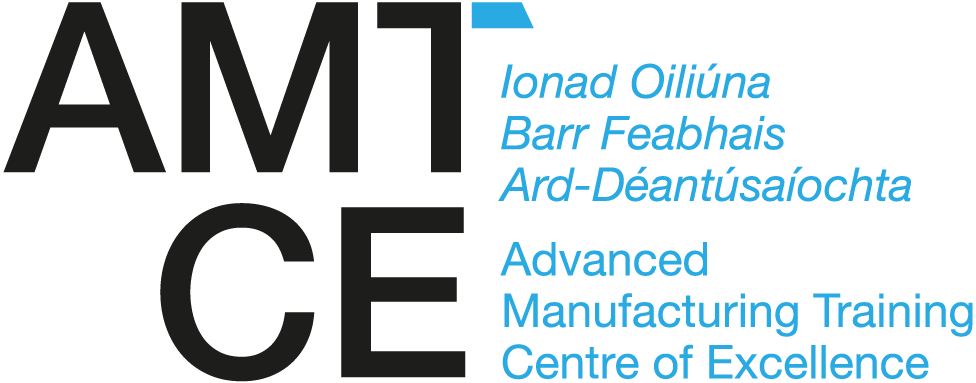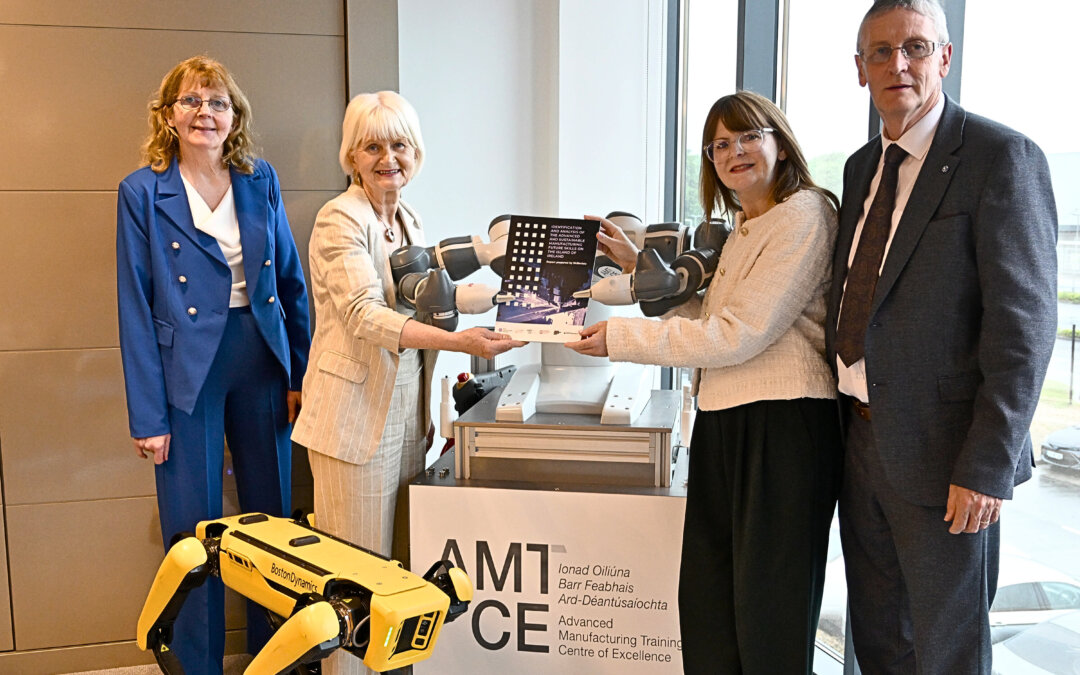The AMTCE were delighted to host the 2025 All-Island Industry 4.0 Future Skills Report. The report reveals that the advanced manufacturing sector is facing a growing skills challenge that threatens to impact innovation, competitiveness and economic growth unless coordinated action is taken.
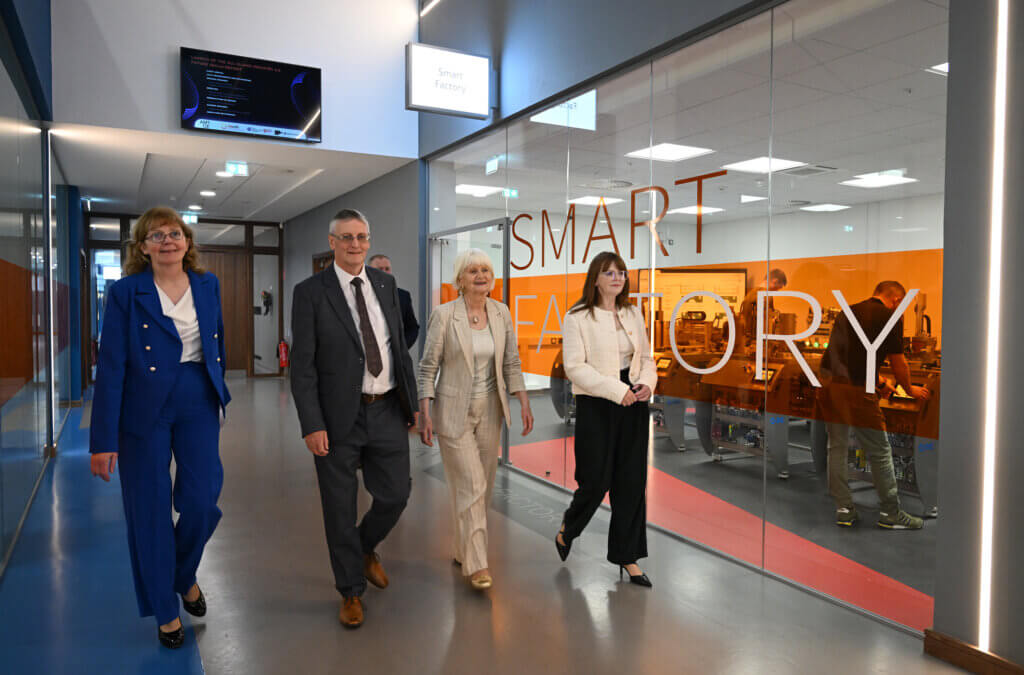
The Future Skills Report was compiled on behalf of LMETB:AMTCE, Irish Manufacturing Research and the Advanced Manufacturing Innovation Centre (AMIC) at Queen’s University in Belfast with funding from InterTradeIreland.
In a significant move towards promoting high level advanced manufacturing skills and apprenticeship training across the Island of Ireland, the report launch was attended by Marian Harkin TD, Minister of State for Further Education at the Department of Further and Higher Education, Research, Innovation & Science (DFHERIS) and Dr Caoimhe Archibald, MLA, Minister for the Economy of Northern Ireland.
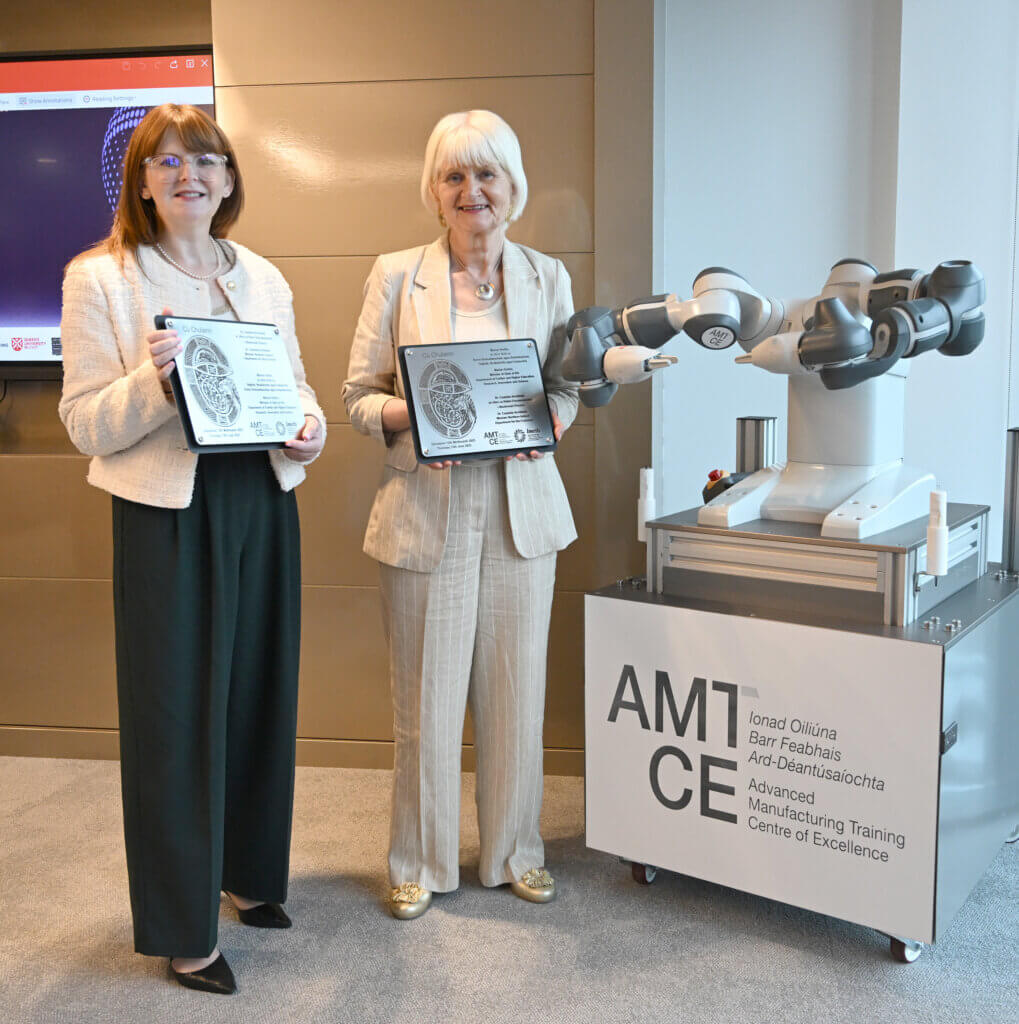
It was an inaugural visit for both Ministers to the world class facility, emphasising the AMTCE’s pivotal role in the integration of advanced skills training on an All-Island basis. Since its establishment in 2021, it has received significant investment from DFHERIS, Solas and Enterprise Ireland and has catered for 7,000 learners to date.
The Ministers were welcomed by Martin O’Brien, CE of LMETB, Sam Turner, CEO, AMIC-Queen’s University; Liz Carroll, Irish Manufacturing Research, Sadie Ward McDermott, Director FET at LMETB and Gerard Smith, Director of AMTCE.
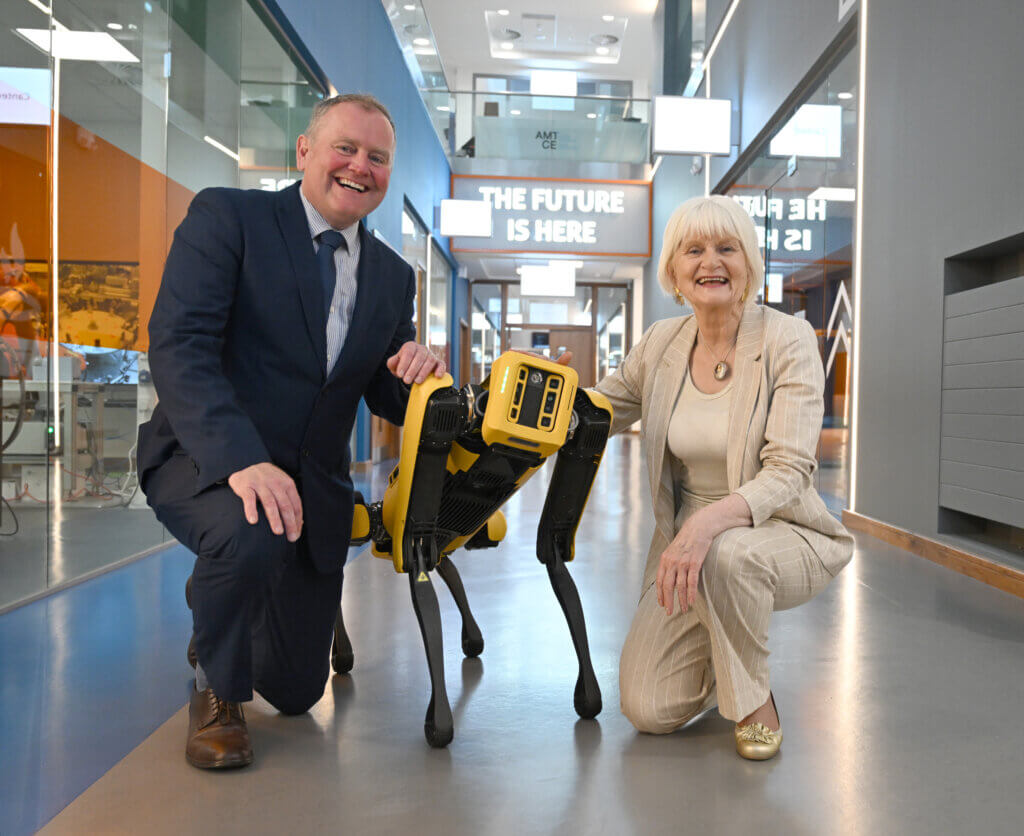
Advanced manufacturing is a key industry on the Island of Ireland, with over 350,000 people employed, 260,000 (12% of total employment) and 90,000 in Northern Ireland (11%). It is at the forefront of industry 4.0, referring to the “smart” and connected systems that are designed to support production in real-time, increasing productivity, efficiency, and sustainability.
Key Findings:
- Skills Gaps Are Growing: Demand for advanced technical and transferable skills is rising, but training and curricula lag behind. Engagement from younger demographics, especially women, is still low. Young women are three times less likely to consider a career in advanced manufacturing than young men due to negative perceptions, lack of awareness of the opportunities and benefits of working in advanced manufacturing.
- Recruitment Is Struggling: Negative perceptions and a lack of visibility into career pathways are hindering talent pipelines.
- The System Is Fragmented: There is no coordinated all-island strategy, resulting in duplicated efforts, training misalignment, and limited cross-border collaboration.
- Industry and Education Are Out of Sync: Employers report difficulty accessing fit-for-purpose training, while educators struggle to respond to evolving industry needs quickly enough.
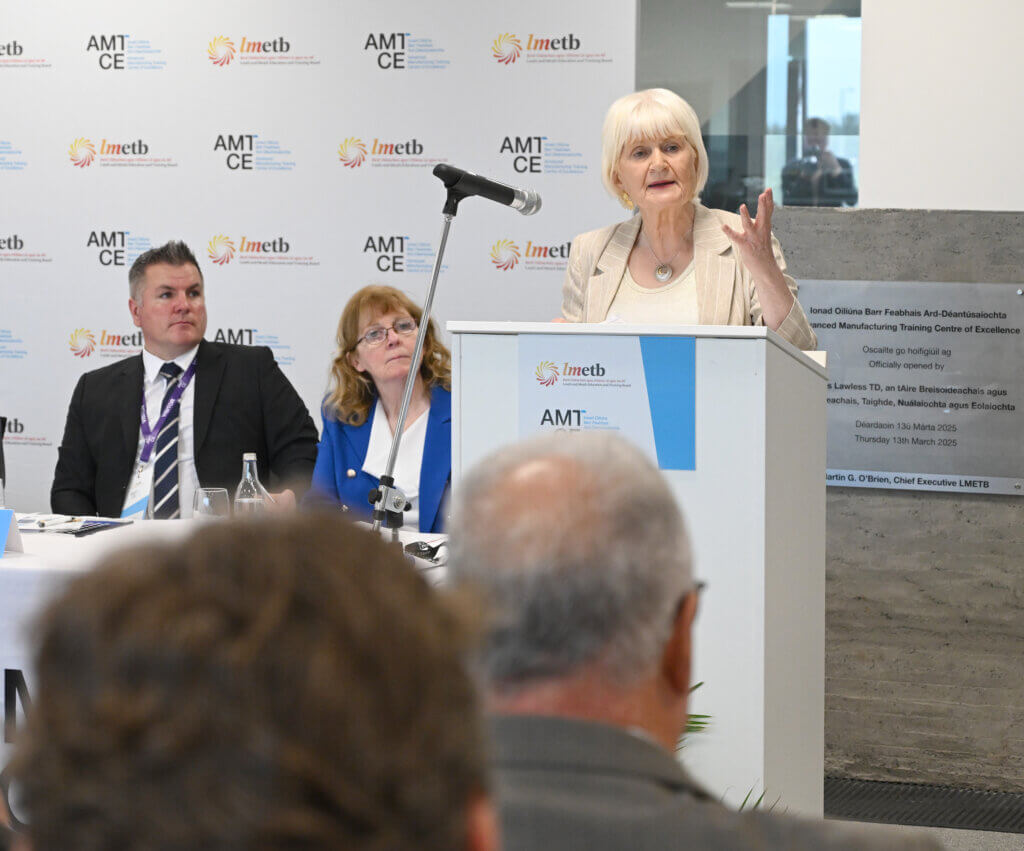
The 2025 Future Skills Report sets a strategic goal to build an inclusive, technologically responsive, and collaborative manufacturing workforce. It emphasises that success will depend on breaking down silos, modernising education systems, and fostering cross-border cooperation.
To read more about the report please see here
